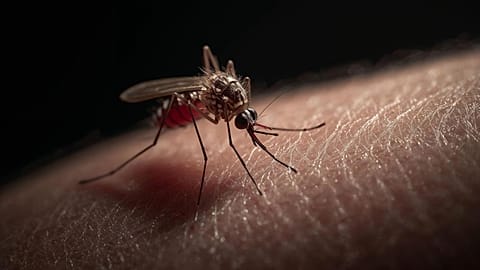An in-depth review found no quality evidence of a link between paracetamol use during pregnancy and autism or ADHD diagnosis in children.
Since US President Donald Trump linked paracetamol to autism in children in September — telling pregnant women to “fight like hell” to avoid taking the common painkiller — the global scientific community has been hotly debating the validity of the claim.
A new in-depth review of existing evidence published in The BMJ on Monday found there was no clear link between paracetamol use during pregnancy and autism or attention-deficit/hyperactivity disorder (ADHD) diagnoses in children.
The researchers from major universities and institutions in the United Kingdom, Australia, and Spain conducted the review in direct response to the recent debate over the safety of paracetamol during pregnancy. It adds to compounding reportsfrom scientists and global regulatory agencies that affirm the drug is safe.
“We wanted to do a review of all the reviews in the space to make sense of what the evidence is so far,” said Shakila Thangaratinam, one of the study’s authors and a women’s health professor at the University of Liverpool.
“What is the quality behind it? And how do we actually interpret the totality of evidence, so that it helps health care providers convey this information to mothers and their families?” she told Euronews Health.
In the BMJ review, researchers analysed nine existing systematic reviews on the topic to assess the overall quality and scientific validity of the claims.
All nine reviews reported a link between paracetamol use in pregnancy and autism or ADHD in children. But the BMJ researchers found that many of these studies did not adjust for important health and lifestyle factors, and that many multi-study reviews were poor quality.
Additionally, seven of the nine reviews advised caution when interpreting their findings due to the potential risk of bias and the impact of confounding factors that could affect the results.
The researchers’ conclusion? Confidence in the findings on the topic are “low to critically low,” meaning the existing evidence is not scientifically sound enough to prove that paracetamol causes these conditions.
Genetic and environmental factors linked to neurodivergence
The BMJ review suggests that any relationship could be partly driven by genetic and environmental factors, or other variables such as parents’ mental health, background, and lifestyle.
In the few studies where these factors were taken into account, researchers say the association between paracetamol and risk of autism and ADHD in childhood disappeared or significantly dropped.
Paracetamol, also known as acetaminophen, is a common pain reliever sold under the brand name Tylenol in the United States. It is one of the only over-the-counter medicines recommended for pregnant women to treat pain and fever.
To coincide with Trump’s news conference in September, the US Food and Drug Administration (FDA) recommended changing the labels on paracetamol packaging to note the “evidence suggesting that the use of acetaminophen by pregnant women may be associated with an increased risk of neurological conditions such as autism and ADHD in children”.
The BMJ review encouraged that more high-quality studies be done on the topic that take into account other factors that could skew the results. Researchers said that would help improve the quality of the evidence on how timing and duration of paracetamol exposure may affect foetal development.
Meanwhile Thangaratinam said making health policy decisions based on inconclusive evidence can have serious consequences, and that more research needs to be done that prioritises women’s health specifically.
“There is a sex and gender gap in science, and studies such as this actually highlight the need for prioritisation and investment in 51 per cent of the population, especially during pregnancy,” she said.


















